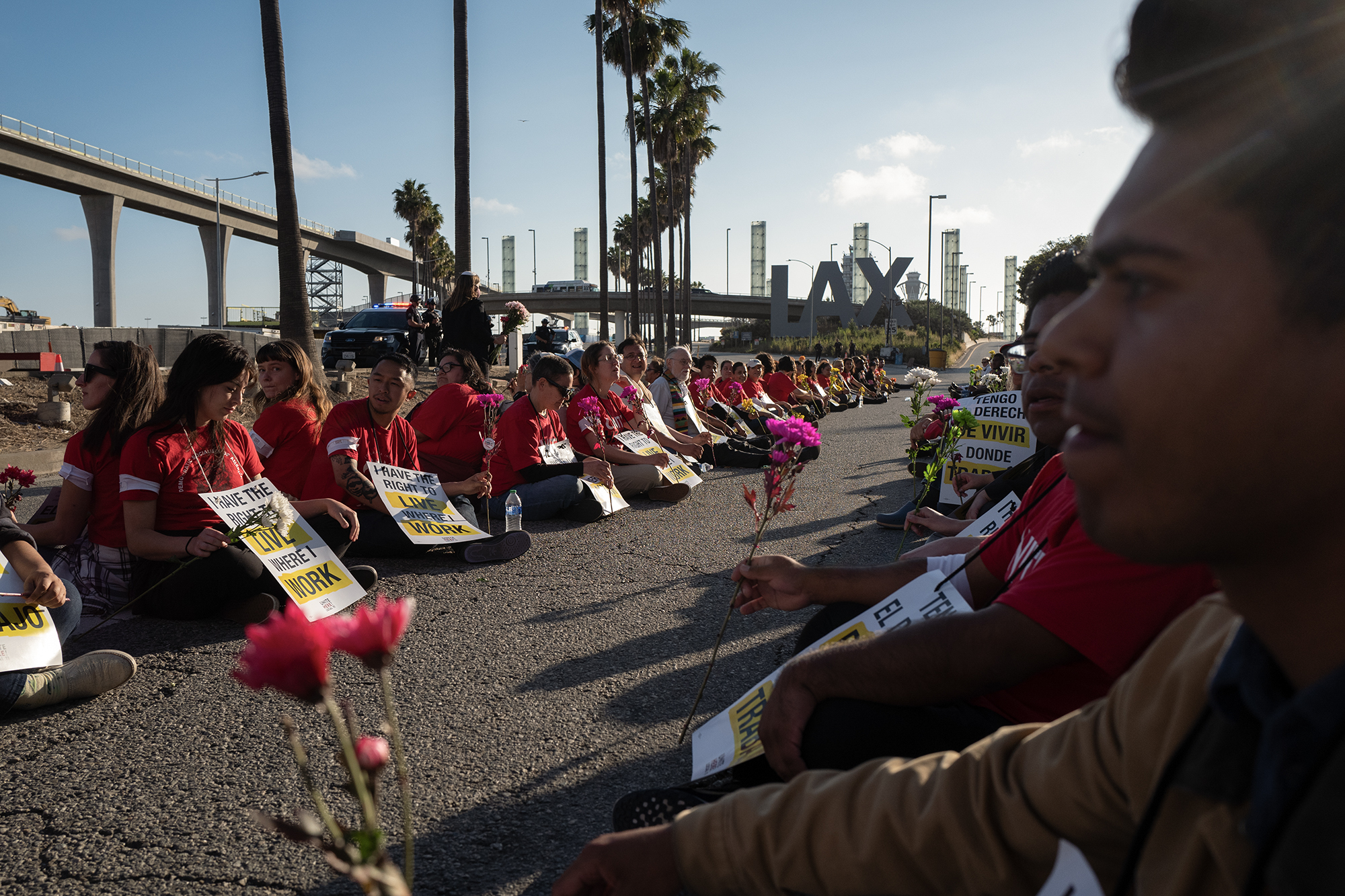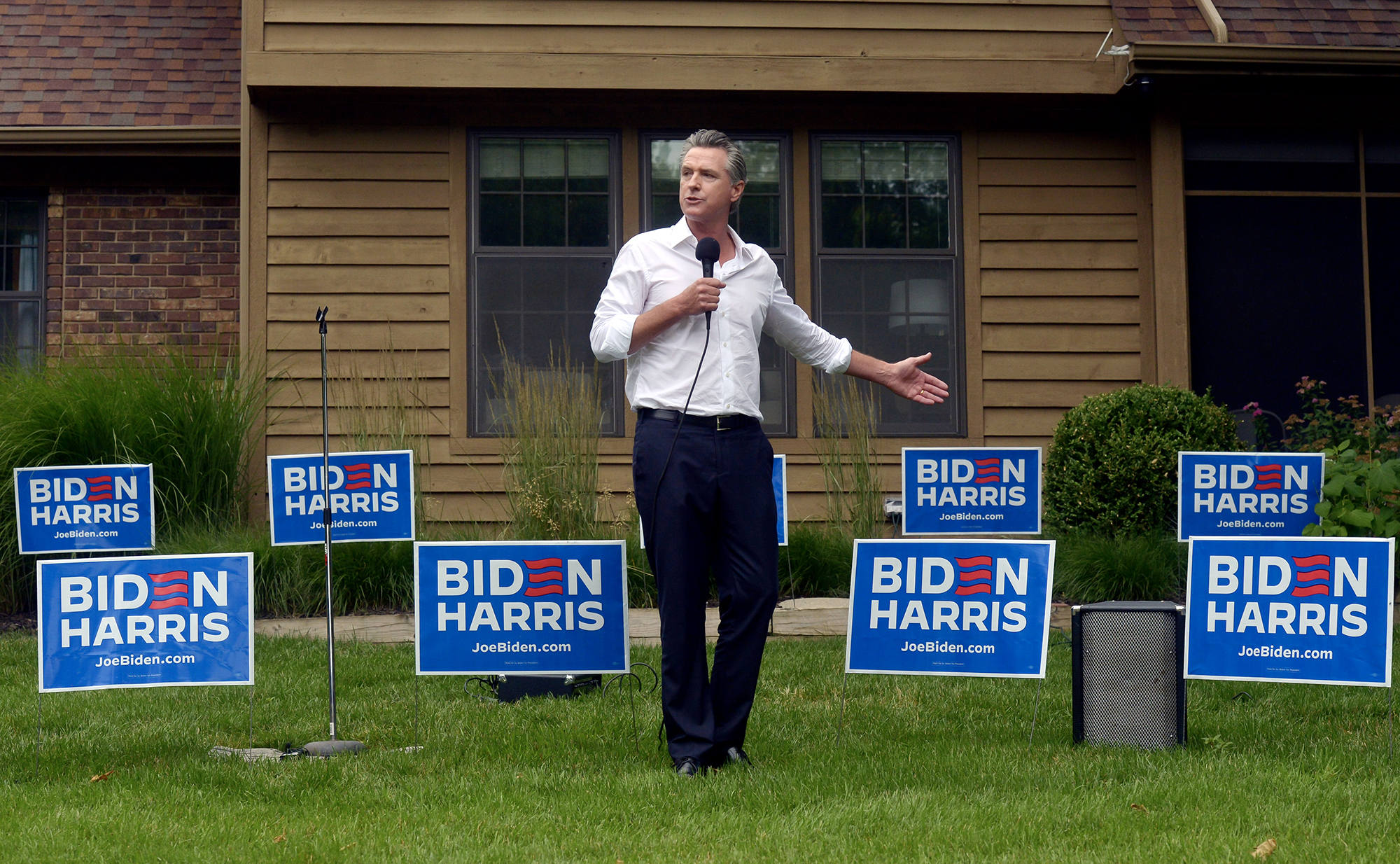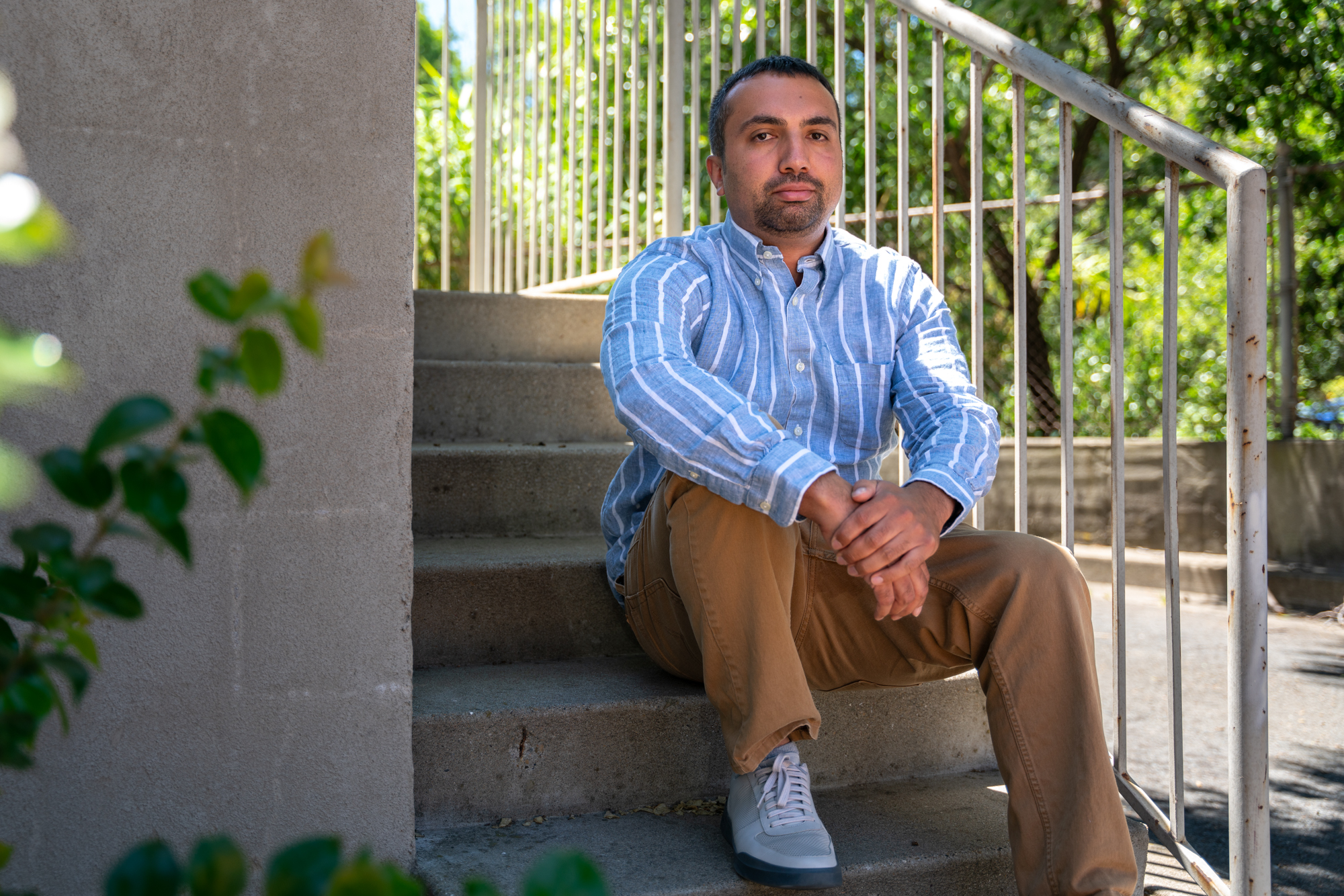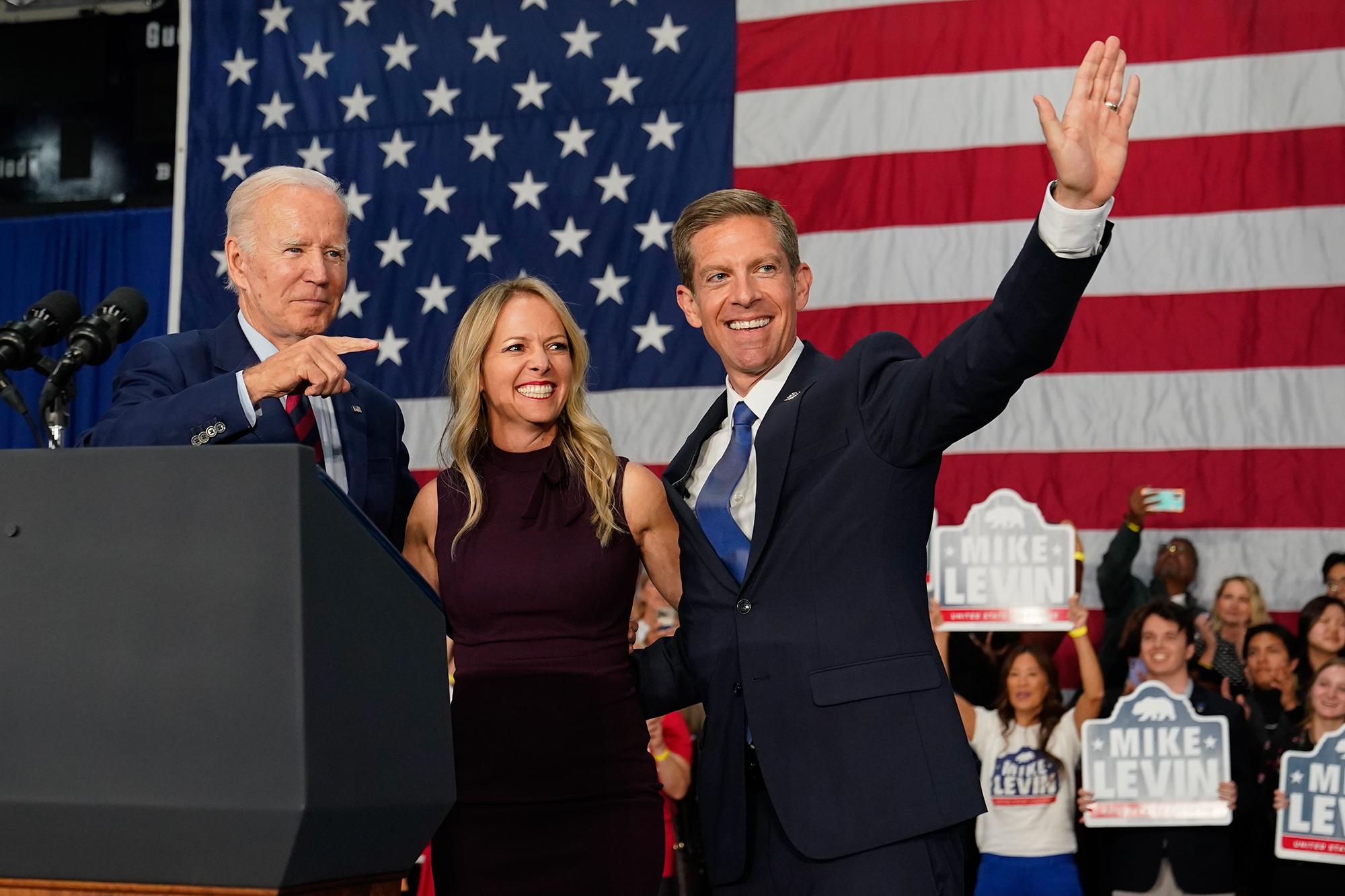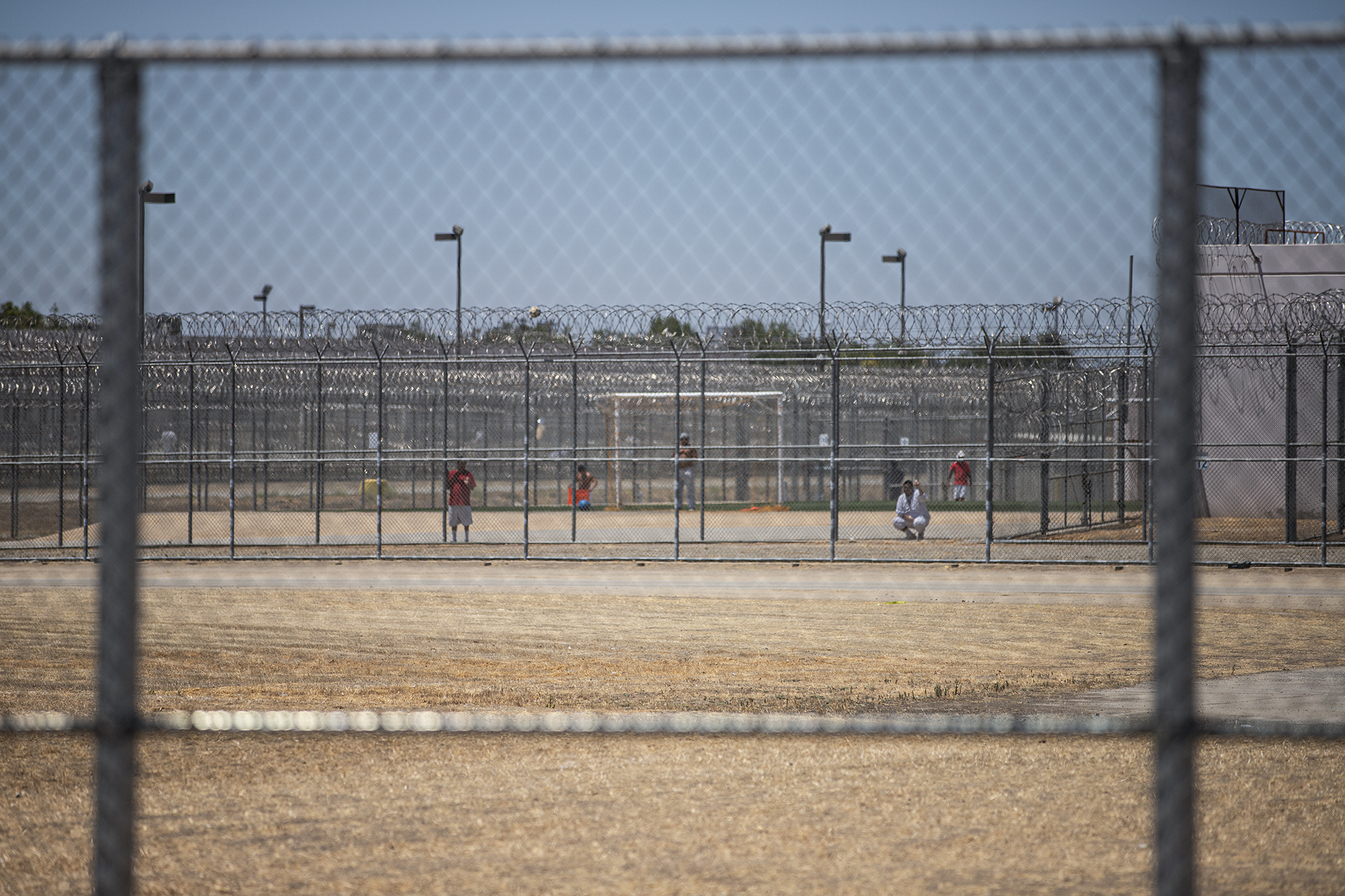In summary
Business and labor groups announce an agreement to limit a California law on class-action workplace lawsuits and avoid a battle at the ballot box in November.
Lea esta historia en Español
Update: The Legislature approved bills to sign off on the deal on June 27, and Gov. Gavin Newsom signed them on July 1.
For years, California businesses have tried to repeal a unique state labor law that allows workers to sue their bosses over alleged workplace violations and generates hundreds of millions of dollars in employer penalties for the state. In a deal announced today to amend the law, some of those employers would pay less, and instead get more of a chance to improve the workplace.
The agreement — struck between the California Chamber of Commerce and the California Labor Federation with Gov. Gavin Newsom’s office mediating — means a ballot measure will not go before voters in November.
A business-backed measure to repeal the law known as the Private Attorneys General Act is on the Nov. 5 ballot; as part of the deal the measure’s proponents will pull it by the June 27 deadline and both sides can avoid spending millions campaigning.
With the support of Newsom and legislative leaders, lawmakers are likely to pass a bill amending the act that, according to proponents, focuses on stopping labor violations rather than financial payouts. The deal would reduce monetary penalties for employers who are notified of such suits if they agree to fix the problems, with a specific path provided for smaller employers to “cure” violations. The agreement also limits the suits to employees who have experienced the alleged violation within the past year, increases the amount paid to workers and includes the ability for judges in these suits to order businesses to stop alleged violations.
And it pushes California’s labor agencies to reduce their backlog of wage theft claims more urgently by granting the Department of Industrial Relations emergency hiring authority to more quickly fill chronic staff vacancies that have significantly hampered the state’s ability to respond to worker complaints.
Chamber of Commerce chief executive Jennifer Barrera, in a press release, called the agreements “meaningful reforms that ensure workers continue to have a strong vehicle to get labor claims resolved, while also limiting the frivolous litigation that has cost employers billions without benefiting workers.”
Newsom said in a statement that “this proposal maintains strong protections for workers, provides incentives for businesses to comply with labor laws and reduces litigation.”
The deal settles, for now, several years of businesses’ attempts to curb or repeal the act through court cases and legislation.
Business groups including the California Chamber of Commerce qualified a measure to repeal the law two years ago, but for months this year businesses and labor advocates have indicated they’re open to cutting a deal that preserves but amends the law.
“We are happy to have negotiated reforms to [the law] that better ensure abusive practices by employers are cured and that workers are made whole, quicker,” Lorena Gonzalez, leader of the California Labor Federation, said in a statement.
Business and labor also cut a deal last year: In the Legislature’s final week, they backed a complex bill that raised the minimum wage for fast food workers and that eliminated an industry referendum this November to undo a landmark law regulating fast food restaurants.
The private attorneys law, unique to California, was passed in the early 2000s as a way to give workers who say they’ve suffered labor violations, such as unpaid overtime or denial of their meal breaks, an option other than filing a claim with the state’s Labor Commissioner’s Office, part of the state Department of Industrial Relations.
The state didn’t have the capacity to handle all the workers’ complaints it was getting, so the law allowed workers, represented by private attorneys, to sue the employer themselves, standing in for the state and all their coworkers.
It’s more powerful than filing one’s own complaint: Because the worker is suing as if they were the state, they can bring workplace-wide suits similar to a class action. Without the Private Attorneys General Act, most non-unionized workers can’t file their own such lawsuits because it’s common for them to have signed contracts that take away their ability to sue their bosses — and instead only allow them to settle with third-party arbitrators, who studies show most often side with employers.
Settlements and penalties that businesses pay in response to the lawsuits are split between the state, which gets 75% of the cut, and workers. Workers and their attorneys bring more than 5,000 such suits a year, and the law generates nearly $200 million annually for the state from settlements, penalties and filing fees, according to Department of Industrial Relations data.
The state keeps the money in a fund reserved for enforcing labor laws and educating employers and workers about them. While the state draws on the fund for its labor agencies’ budgets and uses the money to pay for some outreach programs, it also leaves more than $100 million of it untouched each year, irking both businesses and workers’ advocates. And the fund is used to cover budget shortfalls: In April, an early budget deal between Newsom and legislative leaders allowed the state to borrow $125 million.
The deal announced today does not give the state’s labor agencies more access to those funds — but it bumps up the amount workers are paid out from the lawsuits from 25% to 35%.
The law had also drawn the ire of business groups and nonprofit employers who say they’re an easy target for attorneys seeking lucrative settlements, while state agencies do little to help businesses comply with labor laws. Workers’ groups such as the California Labor Federation have acknowledged there are some attorneys who abuse the law, but say the threat of such suits still deters other employers from workplace violations.
In 2022, the U.S. Supreme Court limited some of the law’s scope, ruling that individual workers who had signed arbitration agreements had to take their cases through that process. But the California Supreme Court last year ruled that those workers could still, under the private attorneys act, stand in for the state to sue collectively.


